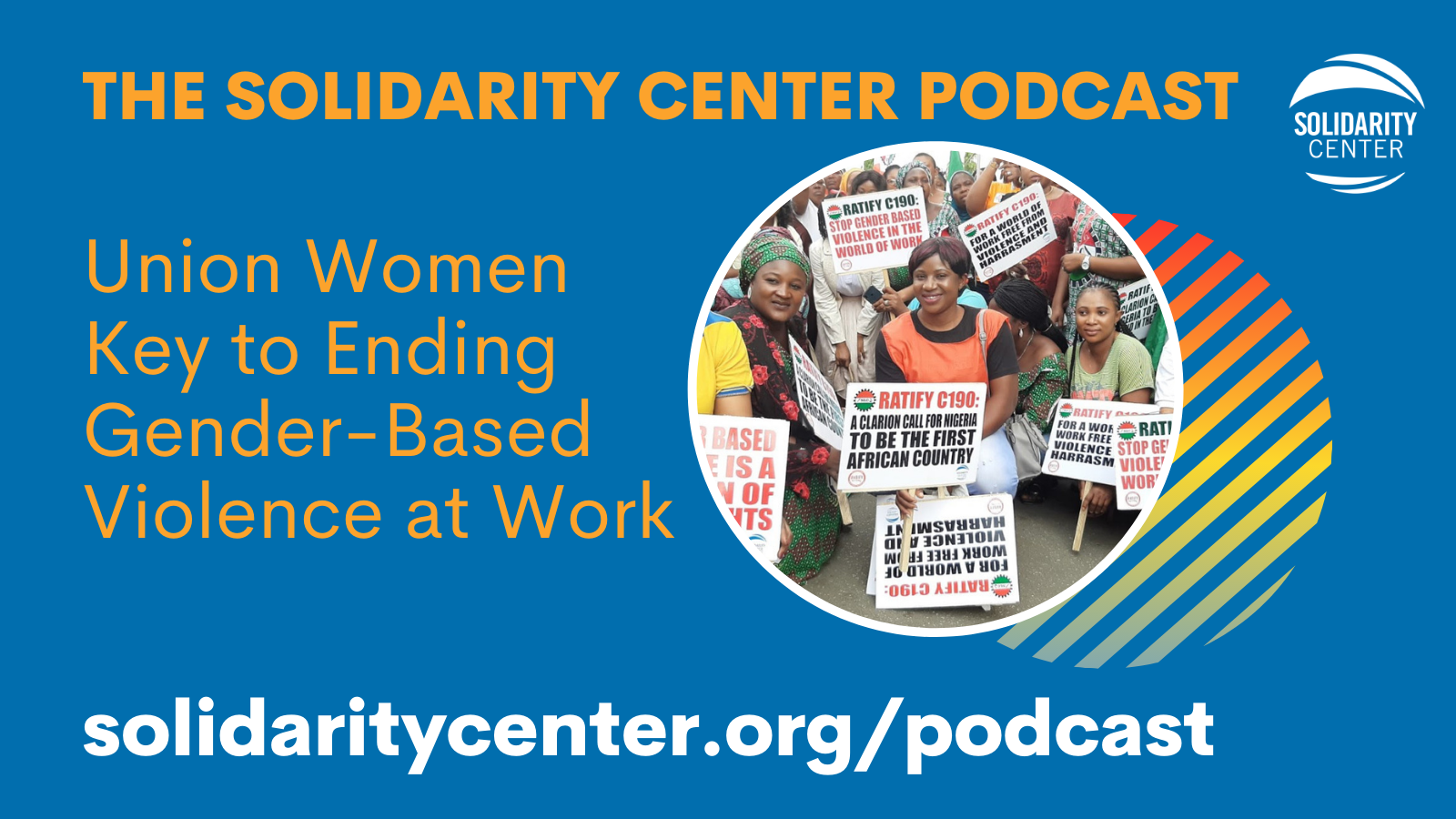When women agricultural workers in Morocco joined to form their first union and negotiate a contract that established gender equality and prohibited sexual harassment and other forms of gender-based violence on the job, their collective action followed years of...
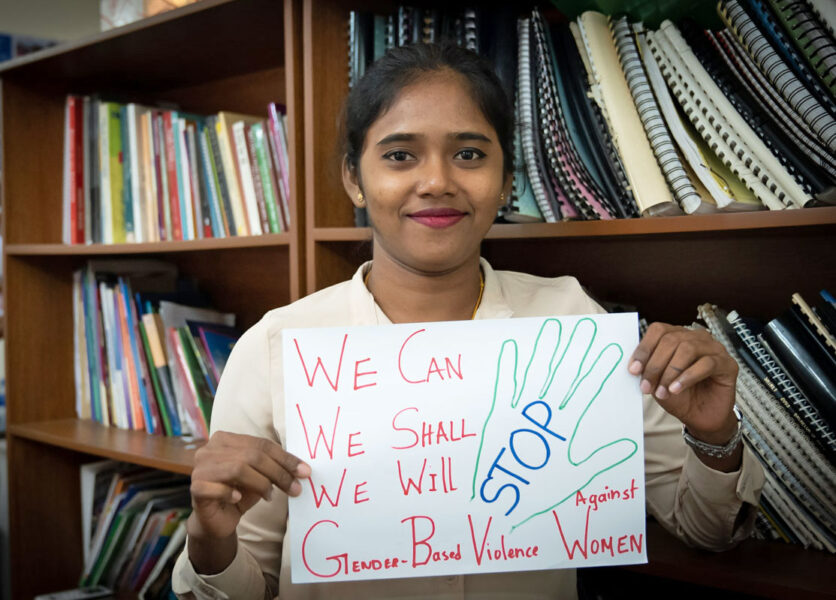
The Solidarity Center and worker rights organizations like the Lanka Eksath Jathika Workers Union in Sri Lanka advocated for a landmark global standard to eliminate gender-based violence and harassment at work and are pushing for its ratification by governments. Credit: Solidarity Center/Sean Stephen
The Solidarity Center prioritizes preventing and addressing gender-based violence and harassment in the world of work, recognizing it is a primary barrier to achieving gender equality and a key step for security of all workers’ rights. The Solidarity Center seeks to enhance the voice of women and other marginalized workers in policy making at the local, national, and international levels to reduce the risk of gender-based violence at work and build leadership, voice and direct participation of women and other marginalized workers and their unions.
Beginning in 2014, the Solidarity Center was a core member of a global coalition of worker rights organizations led by women union activists that successfully advocated for a landmark global standard (Convention 190) to eliminate violence and harassment in the world of work, including violence against women at work which was adopted by the International Labor Organization in June 2019. We support our partners as they campaign for their governments to ratify ILO Convention 190.
See related factsheets, videos and reports.
Podcast: Union Women Key to Ending Gender-Based Violence at Work
For more than 10 years, union women who work at factories, on farms, in restaurants, taxis and offices campaigned for an international treaty to end gender-based violence at work. In 2019, they achieved a huge success when the International Labor Organization (ILO)...
Report: Trafficking Persists in Agriculture
The trafficking of agriculture workers, including children, is widespread globally, and “practices of exceptionalism” limit workers’ rights to freedom of association, organizing and collective bargaining, according to a new report on trafficking in persons in...
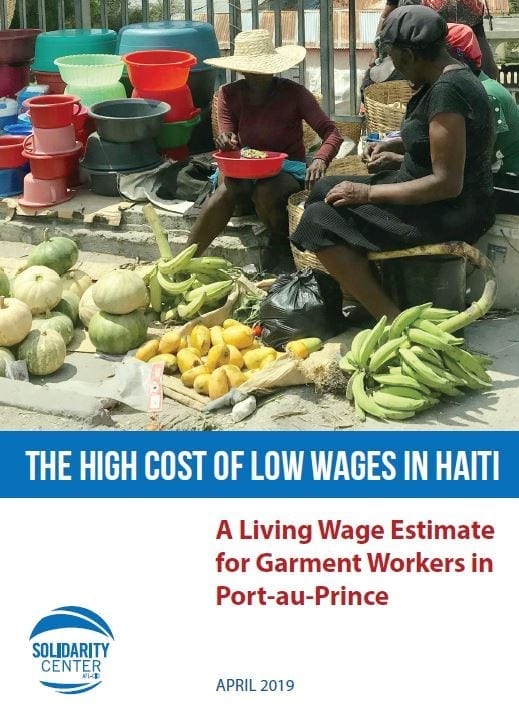
The High Cost of Low Wages in Haiti (2019)
Haitian garment workers face increasing difficulty in covering basic expenditures as prices soar while wages hover far below the cost of living. Download here in Creole. Download here in English. Download here in French.
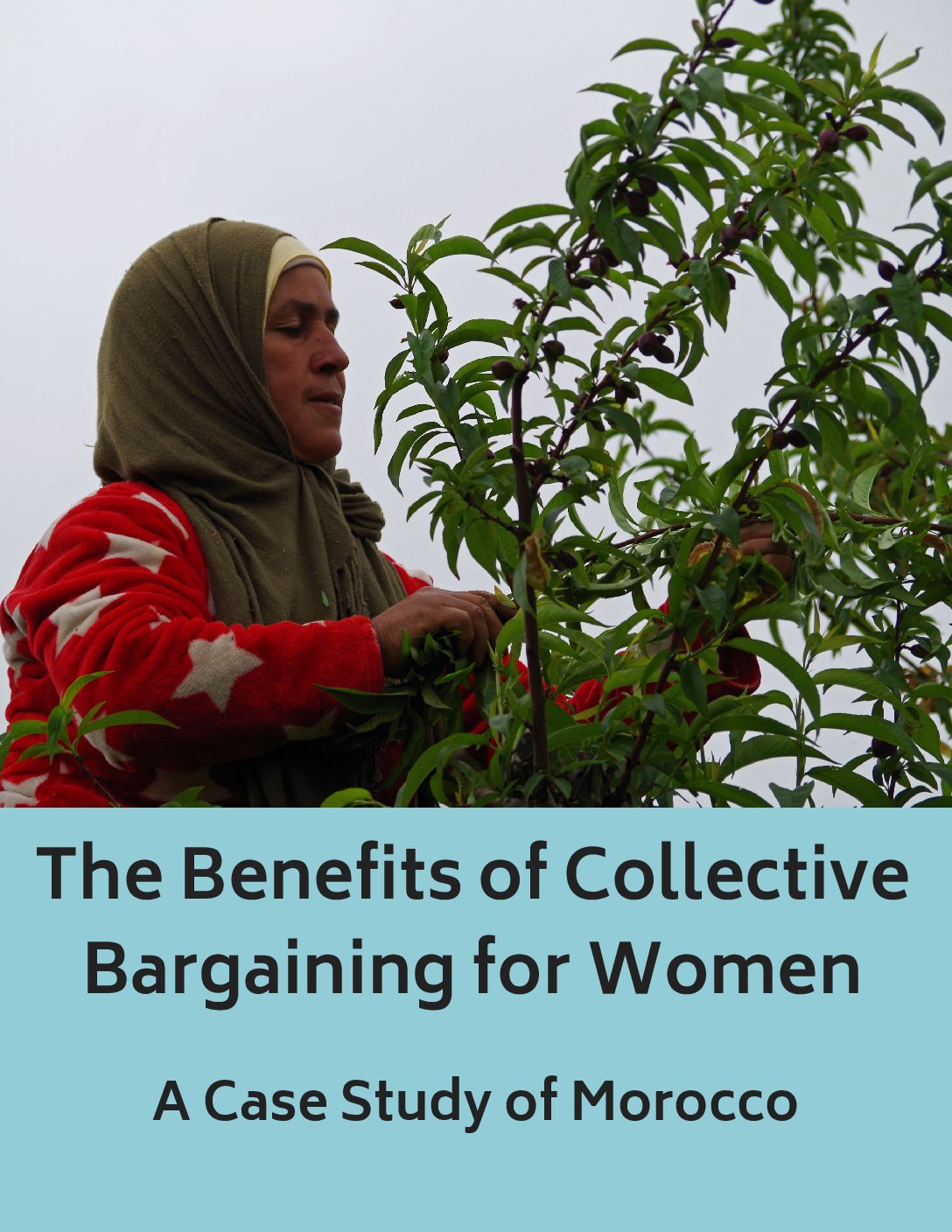
The Benefits of Collective Bargaining for Women: A Case Study of Morocco
This study by the International Center for Research on Women (ICRW) and Solidarity Center finds women workers in Morocco’s fertile Meknes region are making big gains in gender equality on the job through their union, the Confédération Démocratique du Travail (CDT)....
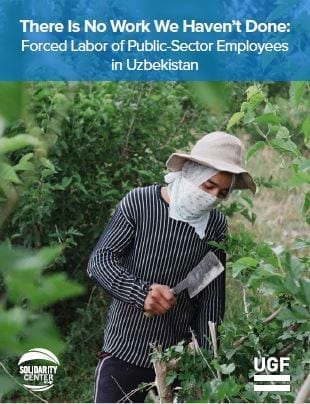
There Is No Work We Haven’t Done: Forced Labor of Public-Sector Employees in Uzbekistan
Although the government of Uzbekistan has made progress on ending child and adult forced labor in the cotton fields after more than a decade of international pressure, a new report finds that forced labor remains rampant in other arenas of Uzbek life, affecting...
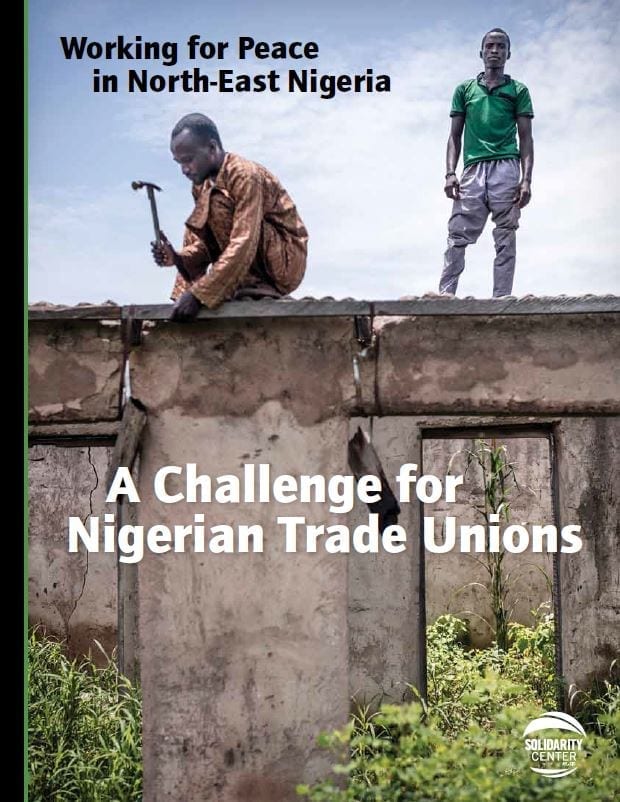
Working for Peace in North-East Nigeria
This report analyzes the impact of violence in North-East Nigeria, where teachers, health care professionals and civil servants were the victimized by insurgents targeting symbols of state authority. The report includes recommendations for government and worker...
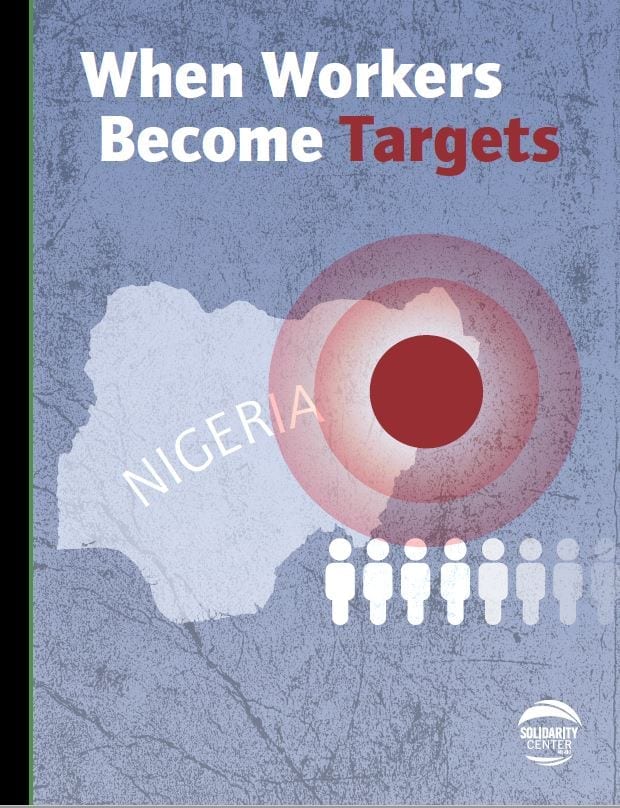
When Workers Become Targets: Nigeria
"When Workers Become Targets: Nigeria," is a collection of real-life experiences of workers, particularly women, during the Boko Haram insurgency in Borno State, North-East Nigeria, and how unions whose members suffered the greatest toll played a crucial role in the...
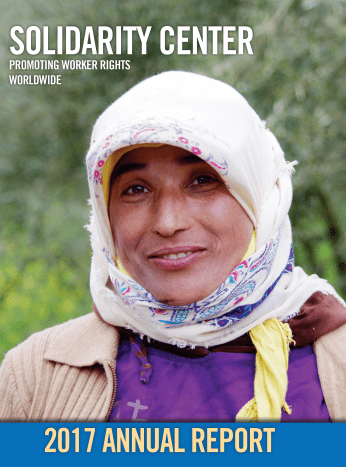
Annual Report 2017
Download here.


